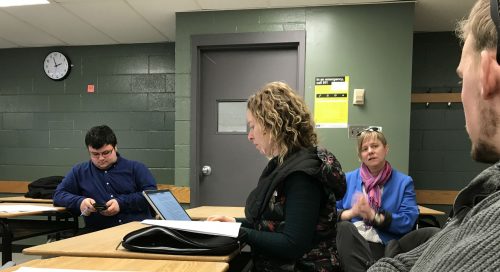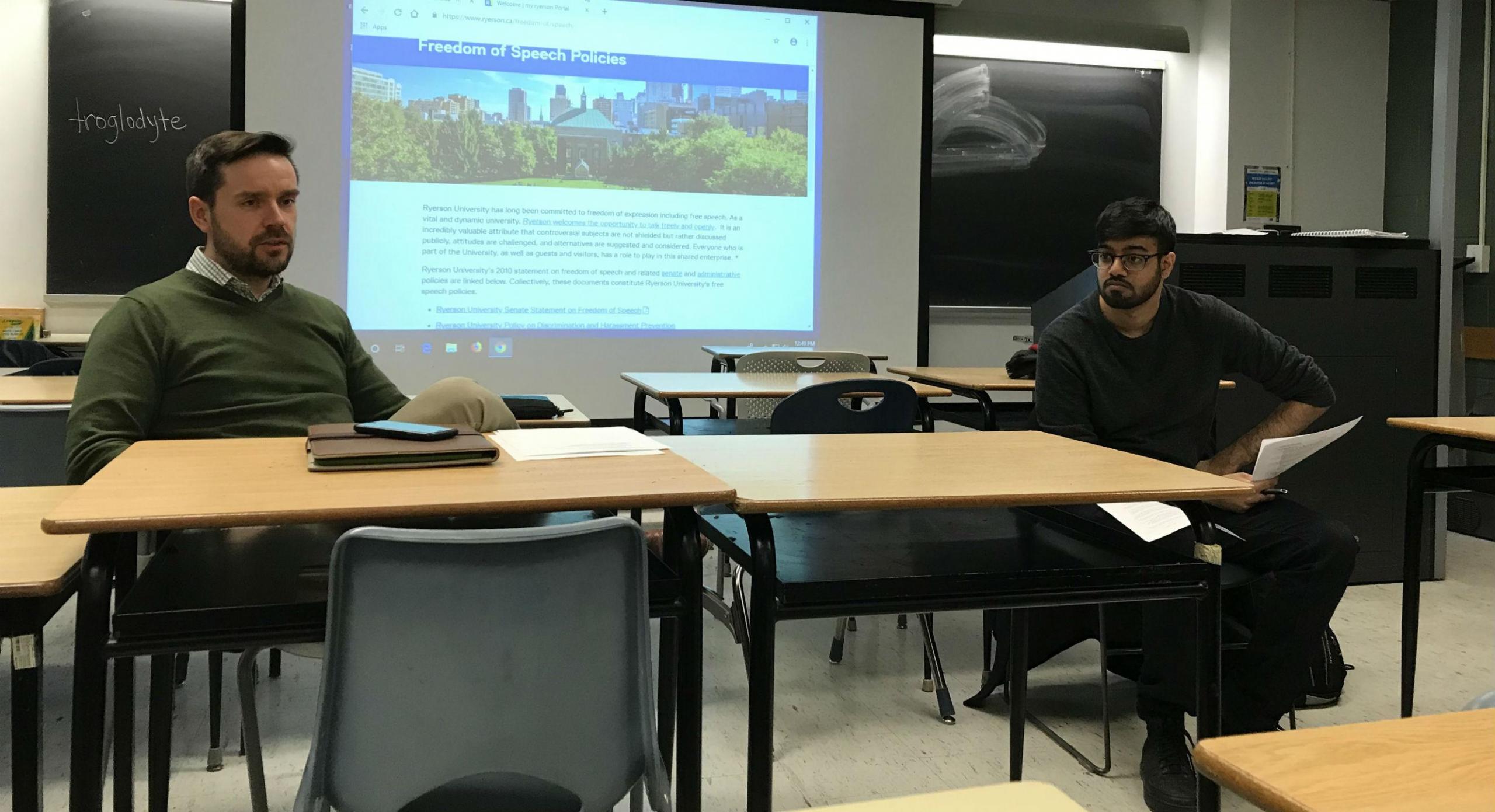By Emma Moore
Ryerson University held its first student consultation of the year on updating its free speech statement on Feb 25.
The consultations come after the university put the updated draft statement on hold in Nov. 2018.
President Mohamed Lachemi previously told The Eyeopener the statement would not be voted on in its current form as further community consultations were needed.
Only four students attended the consultation in addition to Ian Crookshank, the interim executive director of student affairs at Ryerson; Jen McMillen, Ryerson’s vice-provost, students and two student senators.
The university was seeking feedback on their 2010 statement.
During the Feb. 25 consultation, psychological harm from hate speech was one of the concerns brought up.
“Discrimination is not just explicit, there are covert forms of it as well,” said Arvin Jagayat, a school of graduate studies senate member. “But identifying it, we go into this grey area of people who can argue against it, or argue for it.”
This “gray area” would include defining if speech that creates psychological harm is considered violence, McMillen said.
“Great harm can be done without physical interaction. And that is where there is a conflict in freedom of speech,” she said.

According to Jagayat, the senate committee struggled with the idea of psychological harm when they wrote the 2018 freedom of expression draft.
“We know that words matter, not just in terms of their effect on individuals but also…inciting hate,” said Jagayat.
McMillen said it is unlikely any post-secondary institution would try to define “hate speech.”
In Nov. 2018, students from Indigenous Students Rising and the Black Liberation Collective interrupted a senate meeting regarding the university’s free speech statement. They shouted statements including “Ryerson is in bed with Ford.”
Some students said the draft statement would allow hate speech on campus and would prevent students from protesting events they disagreed with.
The university began updating the statement in the summer of 2017. In August of the following year, Ontario premier Doug Ford announced his mandate for colleges and universities to create free speech policies adhering to his guidelines by Jan. 1, 2019.
Institutions that didn’t follow the guidelines risked having their operational funding grants cut.
“Words matter, not just in terms of their effect on individuals”
Lachemi previously told The Eye he believes Ryerson’s 2010 statement meets the government’s criteria.
“The freedom of speech statement provides a guiding statement in terms of the campus’s view on freedom of expression. The detail of how we manage freedom of expression on campus is in the policies,” said Crookshank.
If a member of the Ryerson community had an issue that fell under the non-academic code of conduct, that individual would file a complaint to be processed and reviewed, according to Crookshank.
Policy 61 in the code states “‘nothing in this Code shall be construed to prohibit peaceful assemblies and demonstrations… or to inhibit freedom of expression,’” he quoted. “The statement is more…about what the university values in terms of freedom of expression.”
The question, then, is how to implement the values of Ryerson into the freedom of speech statement.“If [the senate has] to write a new expression statement, should it be Ryerson focused and include our values?” said Jacob Circo, a community services senator.
Circo listed some of Ryerson’s core values as equity, diversity, inclusion, congeniality and community.
Another student consultation will be held Feb. 26.













Jacob Moore
Nice!